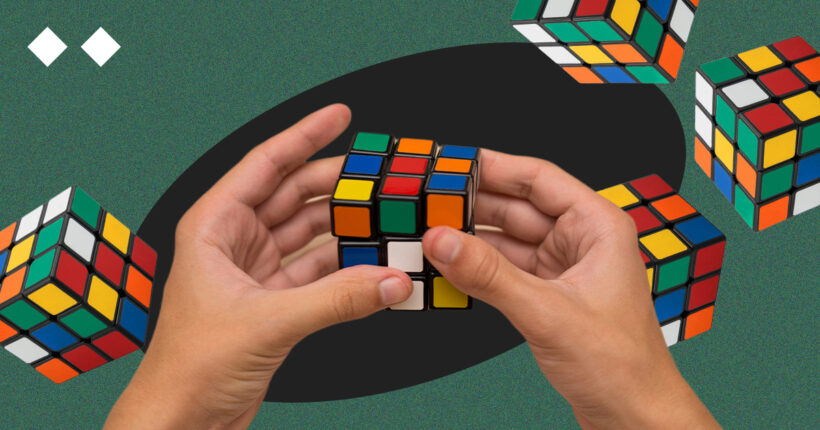
Ukrainian teenagers learn to make furniture to transform the school shelter

A team of students from Voznesensk school No. 5 with mentors and a teacher. Photo from the archive of heroes
Mykolaiv region's Voznesendk school No. 5 is located in the private building sector — not every house there has at least a basement, let alone a fully-equipped shelter. Therefore, the school shelter becomes a refuge for many district residents. During air raids, students stay in the school's shelter for hours.
It is pretty uncomfortable to sit for hours in a basement, which, despite being clean, is not very well equipped. For the school budget, purchasing new furniture would be quite a burden. So, the children began to think about how to improve the school shelter themselves.
The students of Voznesensk school approached this task creatively: they decided to create furniture that would turn the basement into a convenient and comfortable place. In this way, they decided not only to help adults save school money but also to prove that teenagers can do a lot of good for their school and community.
Teachers and students are developing youth movement to preserve their native village
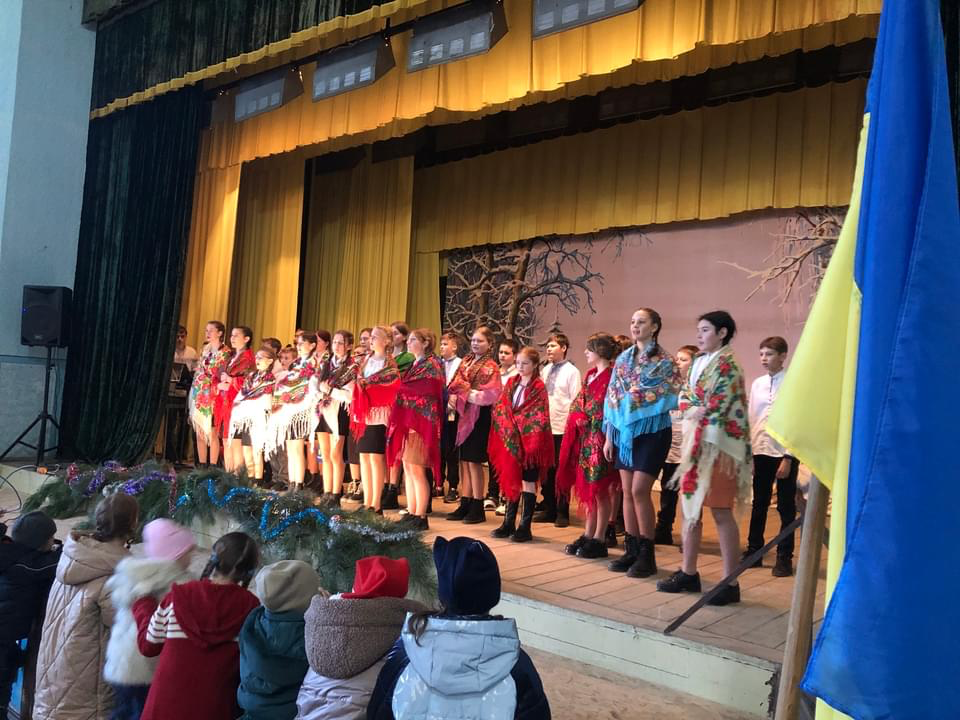
Performance of the students at a charity festival.
Ukrainian villages are declining, and even more so, they often disappear entirely from the maps. Before the war, the biggest problem in the Ukrainian countryside was unemployment, and Russia's invasion only exacerbated it. Due to the lack of jobs, young people leave their native towns and villages to seek employment.
"After graduating, children need somewhere to work — 90-95% of young people simply do not return to their village because there is simply no opportunity to find a decent job there, and the infrastructure is low," says Stanislav Hrynenchuk, co-founder of the youth organization Influence of Unity in Vinnytsia region.
To rectify this situation, to create a comfortable community for young people, and to implement youth projects in Honkivtsi, Influence of Unity was founded by young teachers Stanislav Hrynenchuk and Kateryna Kyryk. The organization primarily united community schoolchildren. Rubryka shares how the initiative works.
Creating nature reserved in Ukraine
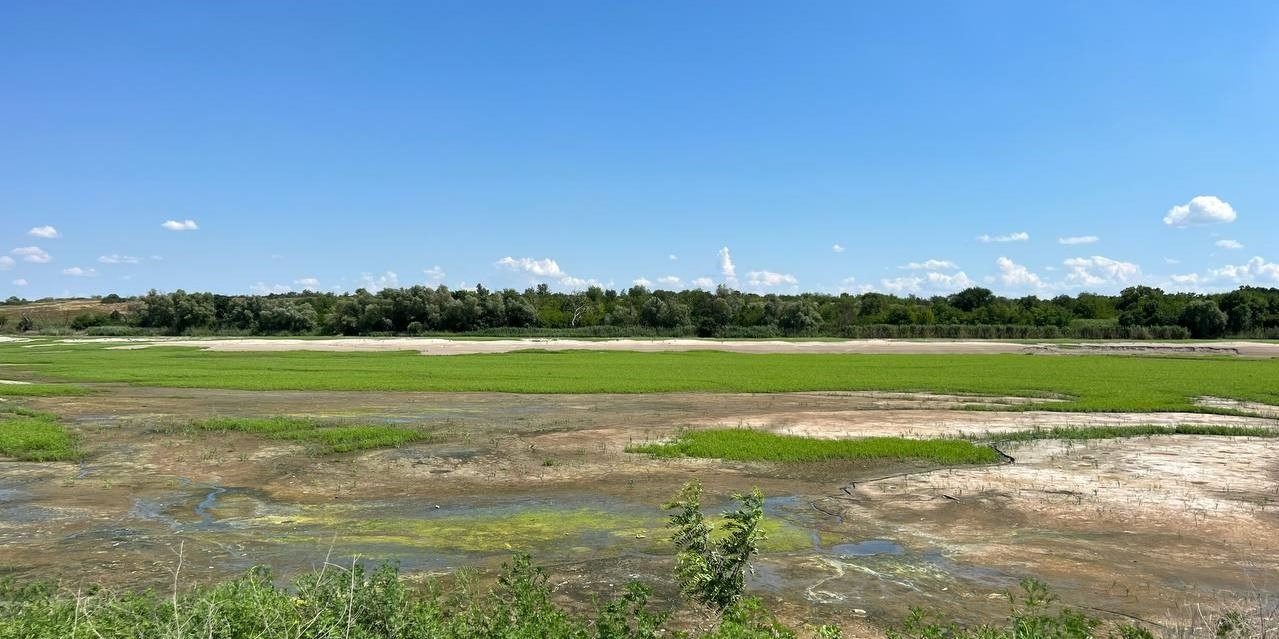
As of February 24, 2022, approximately 812 sites of the nature reserve fund (NRF) with an area of almost one million hectares were in the zone of active hostilities or under occupation. Among them are the biosphere reserves of Askania-Nova, the Black Sea, the Ukrainian Steppe, the Luhansk natural reserves, and many others.
Part of the territory was liberated, but the losses remained. The nature conservation status has not disappeared, but the number of untouched nature under protection has significantly decreased. At the same time, not only hostilities lead to the destruction of nature — a significant portion of the damage to natural territories is due to economic activities, such as pollution of water bodies with agrochemicals, plowing of fields, illegal logging — this list goes on and on.
According to Oleksii Vasyliuk, a biologist and the head of the Ukrainian Nature Conservation Group, the new sites of the nature reserve fund will significantly change the conditions for the existence of biodiversity for the better. Such territories can become worthy compensation for the loss of wildlife during the war.More information can be found via the link.
Ukrainian project helps children cope with war through toy therapy
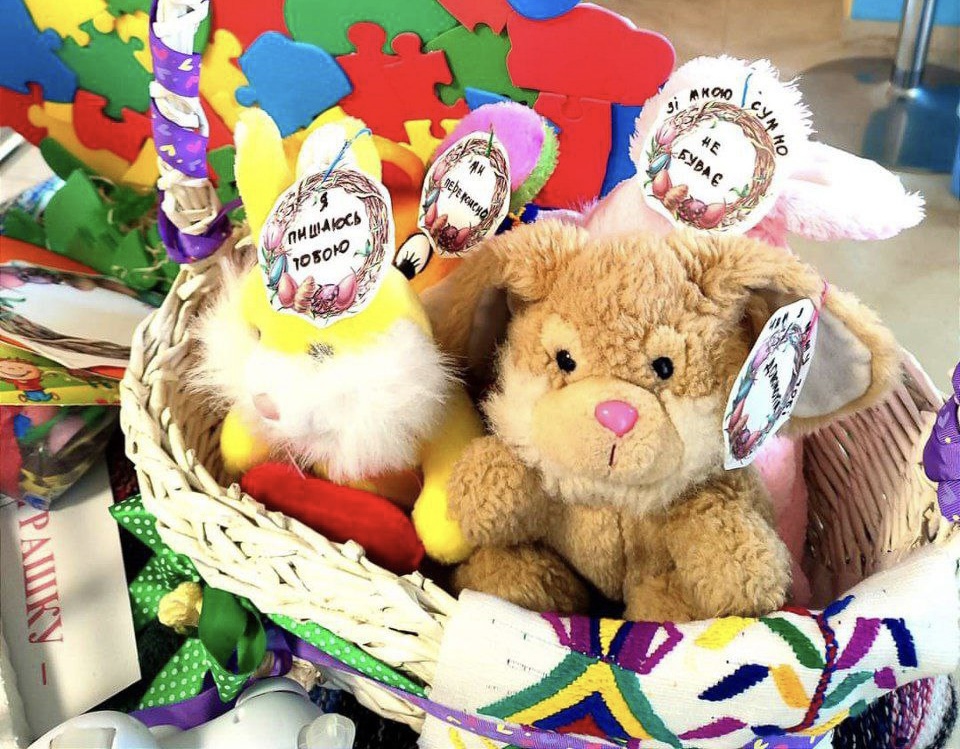
The toy therapy room is a method that Ukrainian psychologists developed during the war.
Sashko is 11 years old. Fate took the most precious thing from him — his mother. She contracted cancer already during the war and later died. To make it easier for the boy to cope with the loss of his dearest person, his father enrolled Sashko in therapy. The psychologist's office is warm and quiet, there are a lot of soft toys, and you can talk about everything.
Toy therapy is an approach to psychological care in which a soft toy acts as a primary tool for communication and emotional expression. Toy Therapy Room is an all-Ukrainian charitable project, thanks to which spaces for toy therapy are now available in many corners of Ukraine. In times of war, it is a necessary and achievable way to build communication and create a safe space for those who are stressed, experiencing loss, and struggling with feelings of anxiety, anger, or fear. Rubryka tells more about the initiative here.
Ukrainian patronage service gives servicemembers motivation to return to the army faster

Olena Tolkachova. Photo: UP
Despite the fact that war in Ukraine's east started in 2014, Ukraine did not build a network of strong rehabilitation centers and did not take much care of this issue. Only in July 2023 was a new concept of forming a network of rehabilitation centers approved. It envisages the creation of more than 7,000 beds for patients with injuries, illnesses, and wounds that require an active recovery process. However, the wounded need proper help already now.
The patronage service Azov Angels helps wounded, captured, and dead soldiers of Azov units. Rubryka tells how the service works and how you can scale this experience.
Ukrainian social enterprise recreates ancient embroidery works

Shirts made by the Free Thread craftswomen. Photo from the enterprise's archive
The shelter of St. Olha in the Kyiv region was created by the non-governmental organization Eleos-Ukraine. It is a shelter for women and children who have suffered from domestic and gender-based violence. There, they can receive various social, legal, and psychological assistance.
The shelter has a huge percentage of women with low qualifications who cannot provide for themselves independently, even more so — rent housing and fully financially support the child. Often, they cannot count on a full-time job because there is no one to leave the child with.
Free Thread is a social enterprise that Nataliia Dresvyannikova created with like-minded people to solve these problems. Before joining the St. Olha's Shelter team, Dresvyannikova worked in various companies. In 2021, she unexpectedly found herself working in the social sphere, which saved her because supporting those who needed help brought great satisfaction. More at the link.
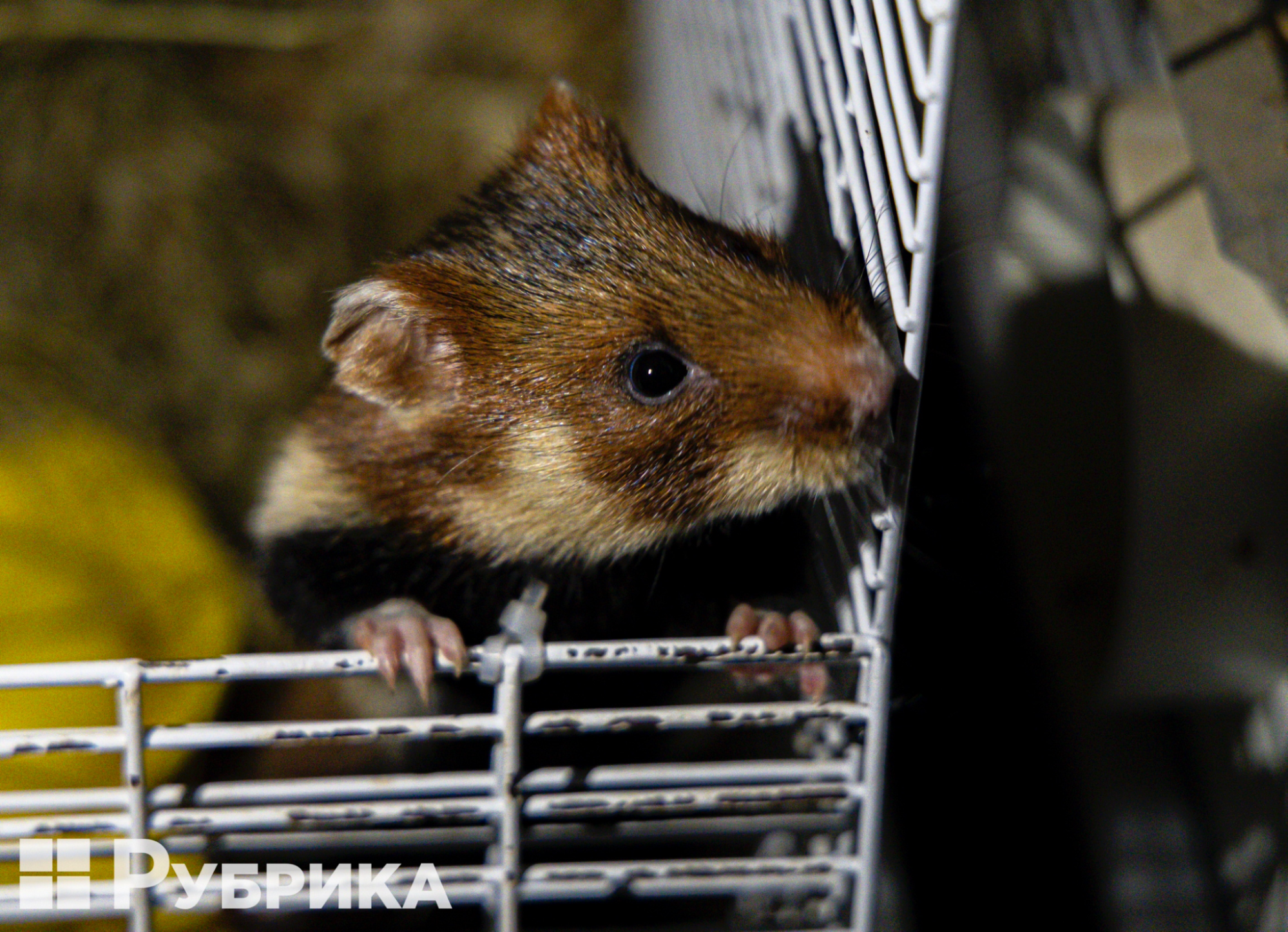
European hamster — a Red Book species, a resident of the Center for the Restoration of Rare Species at the Kyiv Zoo.
Farmers have long struggled with rodents that spoil crops. Mice, rats, and, as it turns out, wild hamsters, even in a small group, can cause considerable damage. Of course, they will not eat a ton of beets, but each of them can be bitten, and such a product cannot be sold.
Farmers' way out of the situation is simple — mousetraps and rat poison. Six species of hamsters living in Ukraine are listed in the Red Book. However, the number of hamsters is constantly decreasing. This is a common problem across the continent. For example, in Poland, its population has decreased by 75% over the past 40 years, and similarly, in the countries of Western and Central Europe.
Ukrainian scientist Mykhailo Rusin found a solution. He rescues hamsters from dangerous conditions and takes them away from people. Rubryka tells about the initiative here.
Music therapy: how playing musical instruments helps Ukrainians' mental recovery
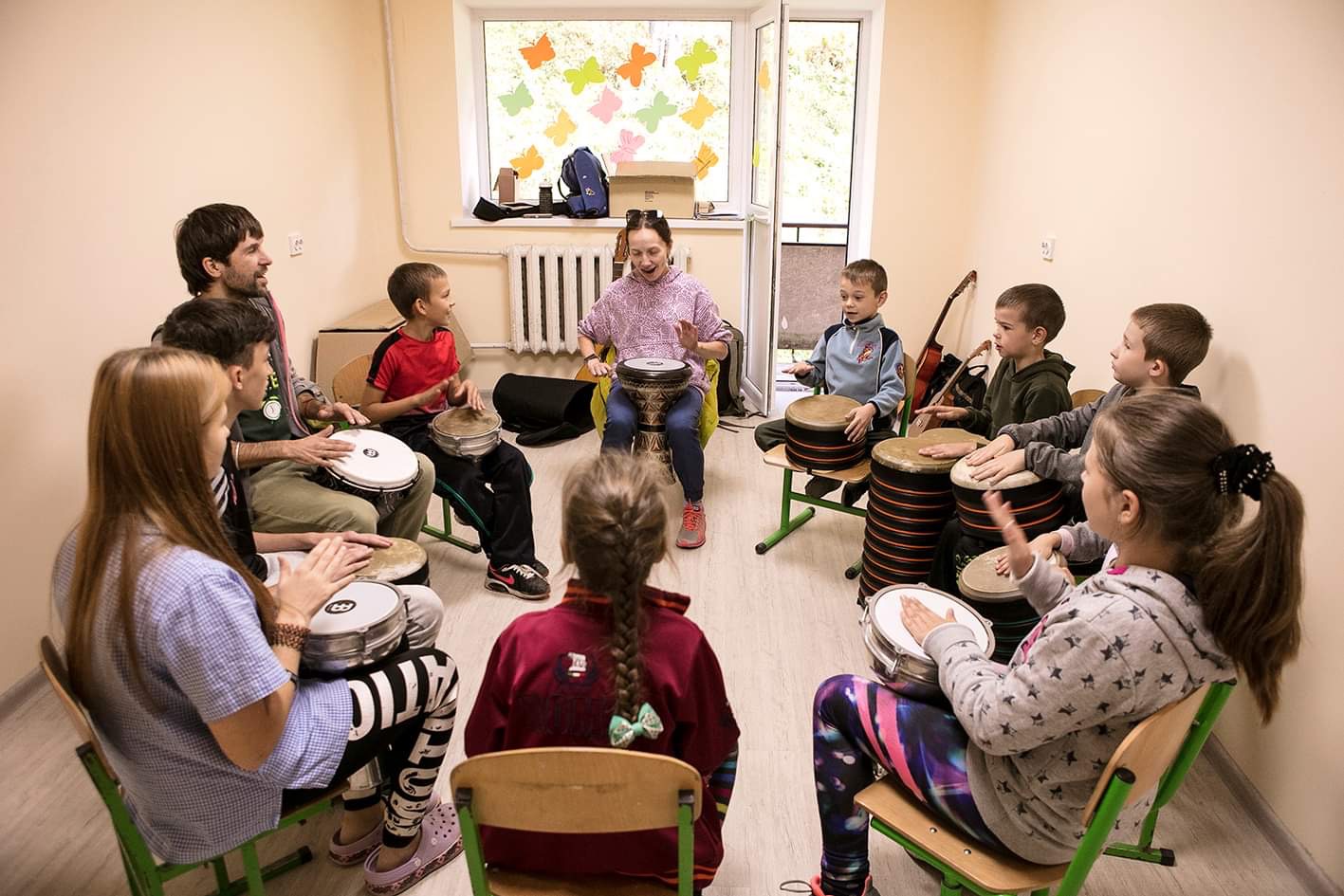
The village of Nizhniy Bystryi, a musical class for residents of a dormitory for internally displaced persons. Photo: "People in Need, Slovak Republic"
During the war, various stressful conditions have become constant companions of Ukrainians, especially among children and displaced persons. Those who were forced to leave their homes due to a full-scale invasion are haunted by feelings of anxiety and uncertainty. The difficulties of adaptation are physically and psychologically exhausting, and conflicts with loved ones and family members are not uncommon. Children, especially those having to learn online in recent years, often lose their communication skills and have difficulty interacting with their peers.
Music therapy can help find a way to inner balance. Psychologists say that it is the most careful tool in working with the human psyche, which allows you to reveal deep experiences and often gives an impressive result. For those who desire to "reboot" thanks to new, unusual experiences, want to learn to express their emotions and are ready to move along the path of self-discovery, enthusiasts and specialists are currently organizing special music classes in various cities of Ukraine. Singing and playing music on simple instruments can help people cope with stress, voice what is difficult to talk about, and believe in themselves and their potential.
You can read about how music therapy is put into practice in Ukraine here.
Ukrainian students grow organic products for school cafeteria

Учні міряють ділянку для майбутнього сад-городу. Фото з мережі
The idea of growing their own products arose a few years ago. It all started with small beds on the windowsill, which were looked after by teachers and students. Gradually, the school began to organize flash mobs with tasty breaks, where children prepared sandwiches with grown greens.
"The children observed how the greens gradually grew, harvested, and tasted them — the taste of what you have grown on your own is much better," shares Iryna Dymiy, the coordinator of the project "Organic products for school. The first step" and history teacher of the school.
Now, the school grounds have turned into a real garden. Students and teachers made wooden beds, where they planted greens and herbs for meals in the school cafeteria. Rubryka found out how the solution works.
Gamified therapy sessions: psychologists dress up as magical characters to help Ukrainian families overcome trauma
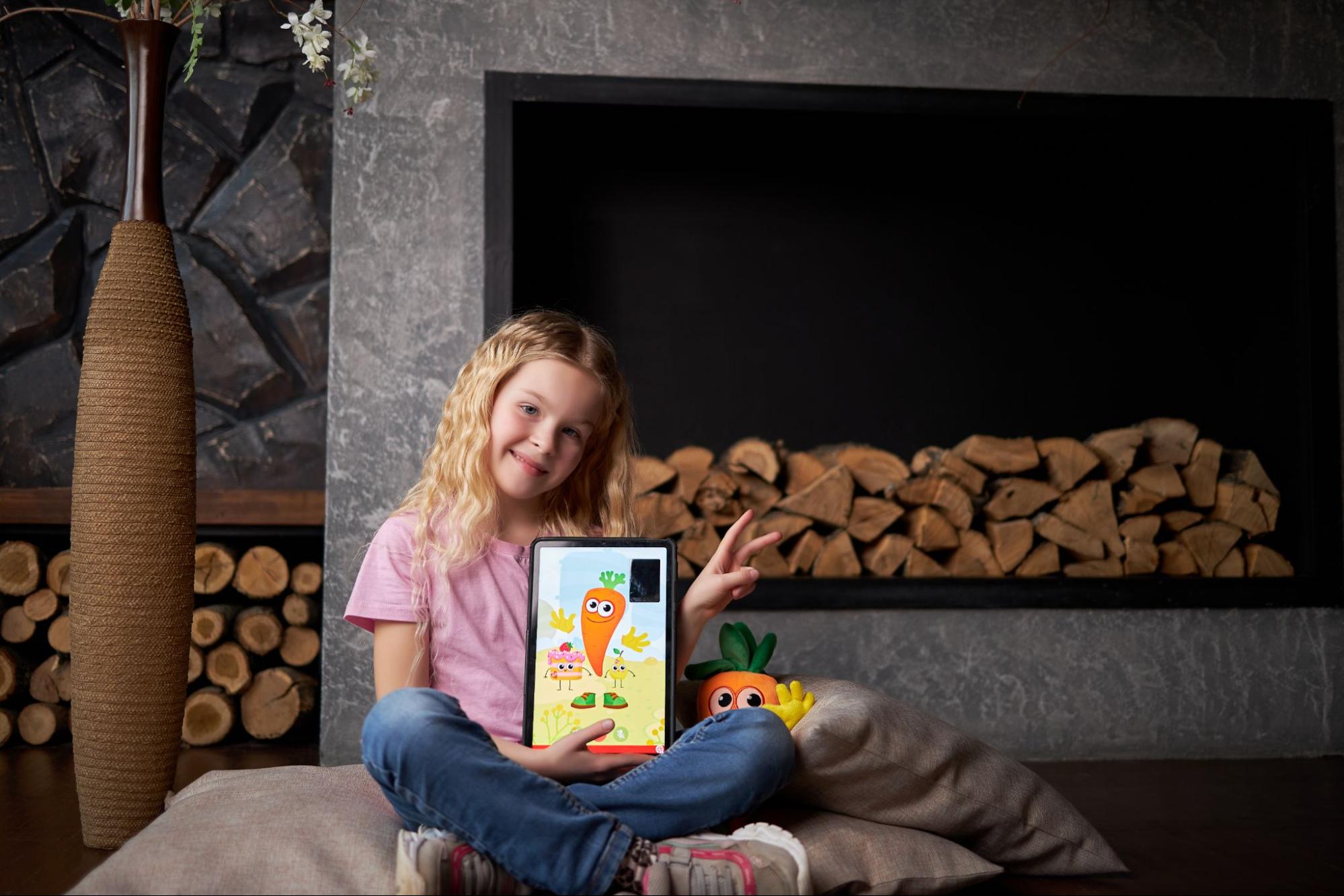
Childhood is a crucial time when a person's worldview, body, and nervous system develop. Psychologists say that personality is formed between the ages of four and nine. However, harmonious formation is possible only in conditions of security and stability — which Ukrainian children are lacking because of the war unleashed by Russia.
Children from front line areas suffer from high levels of anxiety. According to experts, many of them have communication disorders: fear of making new acquaintances, being confident in their opinions, or even just speaking with peers. This is particularly evident among children from Mykolaiv, Kharkiv, Dnipropetrovsk, and Kherson regions, where classes in kindergartens and schools mainly occur online, and children do not receive group socialization, which is important for healthy development.
Since the full-scale invasion, the Kharkiv NGO "Possibility. Motivation. Media" has implemented psychological support projects for children. One of them is Chest of Miracles, an online social project for young Ukrainians that teaches children how to take care of their mental health.
Classes take place in a specially developed, free app. While having fun talking with the fairy-tale character Morkvynka, who, in fact, is an experienced teacher-psychologist, children improve their communication skills, teamwork, and empathy and learn to manage their emotions and feelings.
Rubryka looks at an initiative which disguises psychologists as fairy-tale characters to help hundreds of children from all over Ukraine and abroad.








